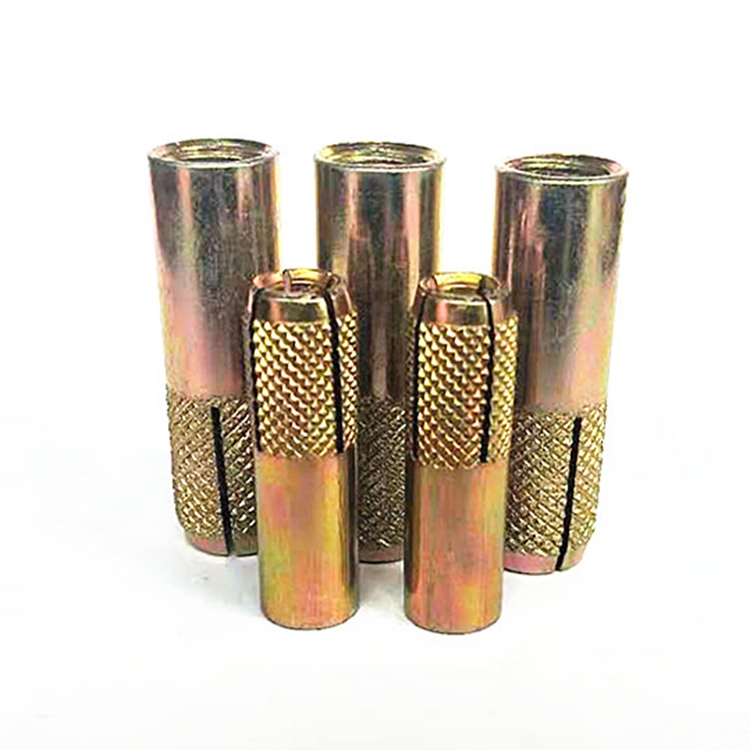Top Quality Head Gasket Bolts for Enhanced Engine Performance and Reliability in Your Vehicle
Jul . 28, 2024 12:43 Back to list
Top Quality Head Gasket Bolts for Enhanced Engine Performance and Reliability in Your Vehicle
Understanding the Importance of Best Head Gasket Bolts
When it comes to automotive performance and reliability, the significance of head gasket bolts cannot be overstated. These seemingly simple components play a crucial role in maintaining the integrity of the engine's head gasket, which in turn ensures that the engine runs smoothly without leaks or overheating. Choosing the best head gasket bolts is essential for both performance engines and everyday vehicles.
What are Head Gasket Bolts?
Head gasket bolts, often referred to as cylinder head bolts, are specialized fasteners that secure the cylinder head to the engine block. The primary function of these bolts is to create a tight seal between the cylinder head and the engine block, preventing coolant and oil leaks and ensuring that combustion gases remain contained within the engine cylinders. Given the extreme temperatures and pressures within an engine, these bolts must be made from high-quality materials and designed to withstand harsh conditions.
The Importance of Quality Bolts
When selecting head gasket bolts, quality is paramount. Poor-quality bolts can stretch, break, or corrode, leading to catastrophic engine failures. This is particularly important for high-performance or modified engines, where the stresses on these components are heightened. High-quality head gasket bolts are often made from durable materials such as chromoly steel or specialty alloys, which provide increased tensile strength and resistance to deformation.
Additionally, it's important to consider the design of the bolts. Many manufacturers offer multi-layered head gasket kits that come with specific bolts optimized for sealing and pressure distribution. Using the correct bolts for your engine type can significantly impact the longevity and performance of the engine.
Torque Specifications and Installation
best head gasket bolts

Proper installation of head gasket bolts is critical to the overall performance and durability of the engine. Each engine model will have specific torque specifications and tightening sequences that must be followed. Tightening the bolts too much can lead to warping of the cylinder head or breaking the bolts, while not tightening them enough may result in leaks and reduced performance.
In many cases, the installation of head gasket bolts requires a multi-step process, where the bolts are gradually tightened in a crisscross pattern to ensure even pressure distribution. Using a reliable torque wrench is essential to performing this task accurately.
Signs of Head Gasket Failure
Understanding the symptoms of a failing head gasket can help you address potential issues before they escalate. Common signs include
- Engine overheating - White smoke from the exhaust - Milky or frothy oil - Loss of coolant with no visible leaks
If you notice any of these symptoms, it's crucial to address the problem immediately. Ignoring head gasket issues can lead to significant engine damage and costly repairs.
Conclusion
In conclusion, the best head gasket bolts are an integral part of any engine's performance and reliability. Investing in high-quality, durable bolts, following proper installation procedures, and being aware of the signs of head gasket failure can significantly prolong the life of your engine. Always consult your vehicle's specifications and consider professional assistance if you're unsure about the installation or selection of head gasket bolts. Prioritizing these components will ensure that your engine operates efficiently and reliably for years to come.
Latest news
-
Top Wire Bolts Suppliers - Quality & Durable Fasteners
NewsAug.15,2025
-
Trusted Wire Bolts Company | Quality Fasteners Supplier
NewsAug.14,2025
-
Reliable Wire Bolts Suppliers & Manufacturers for Global Needs
NewsAug.13,2025
-
High-Quality Bolts for Lawn Mower Handle Supplier
NewsAug.12,2025
-
Leading Phosphated Drywall Screws Supplier | Bulk & Custom Orders
NewsAug.11,2025
-
Top Wire Bolts Company: Manufacturers, Exporters & Suppliers
NewsAug.10,2025
